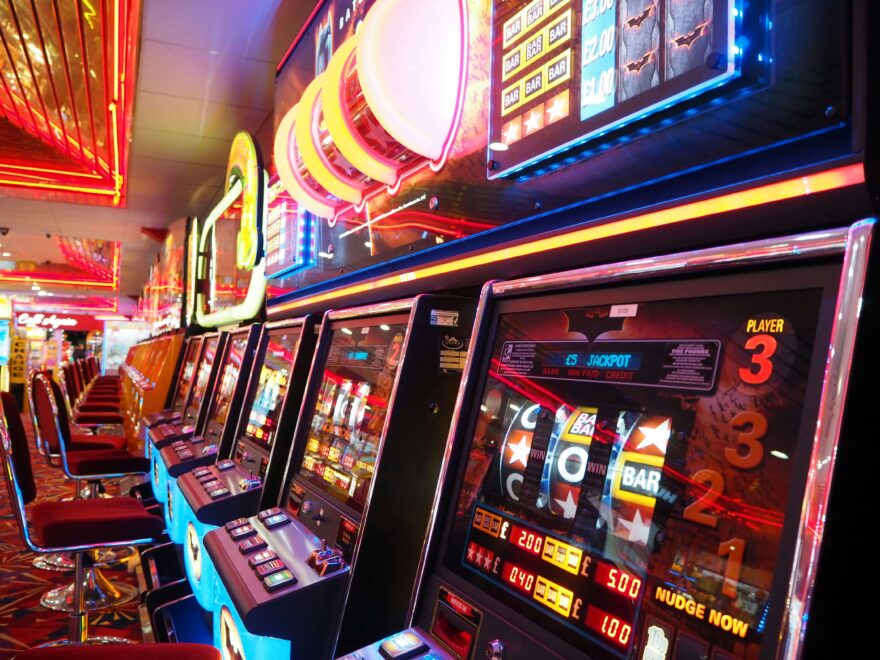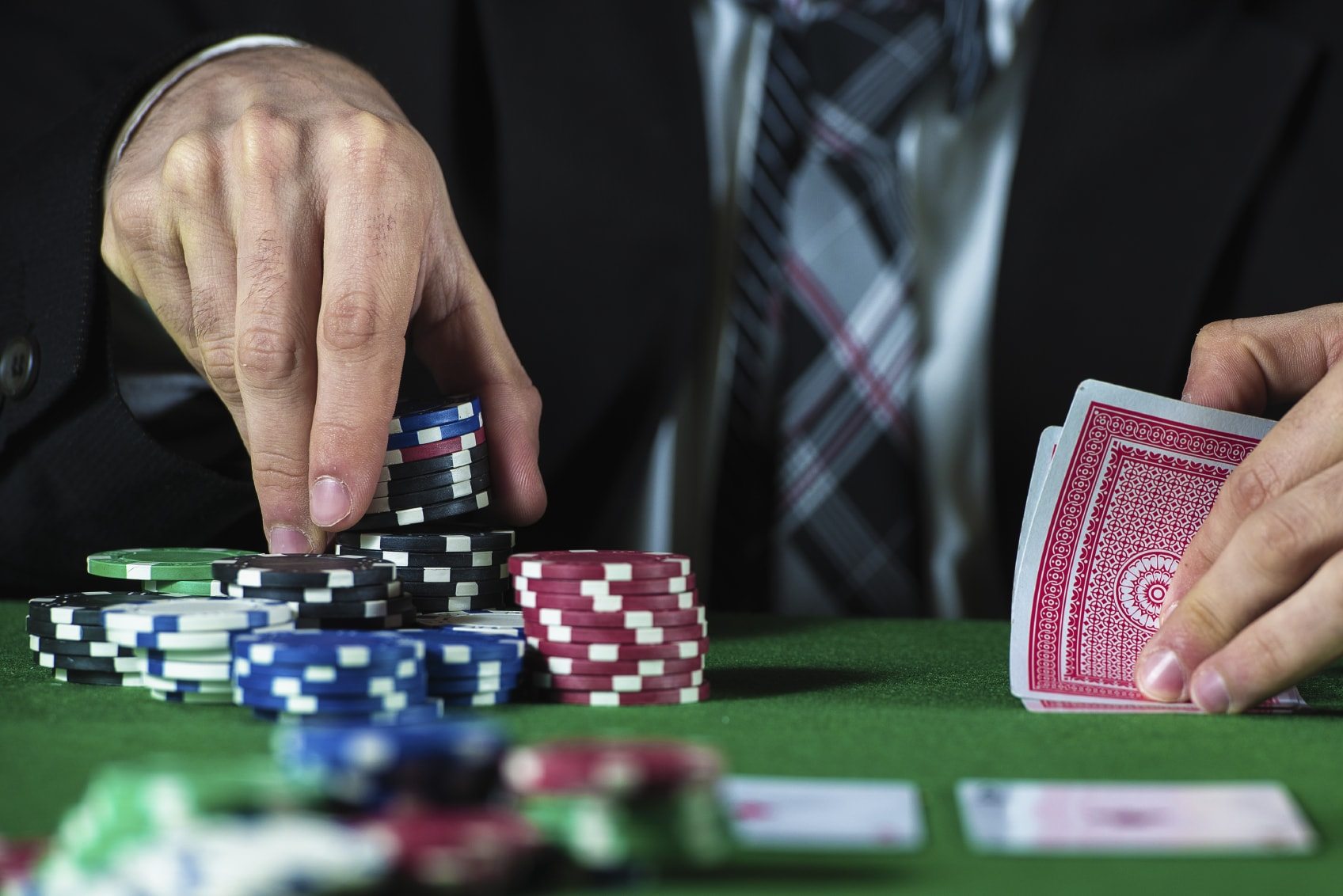Why Do People Get Addicted to Slot Machines?
Why individuals may become addicted to slot machines, including the psychology behind the addiction and the impact of availability and access to slot machines.

Slot machines are a popular form of gambling that can quickly lead to compulsive behaviour. Many people become addicted to slot machines due to their enticing design, rapid pace, and unpredictable rewards. Understanding the reasons behind slot machine addiction is crucial for preventing and addressing the problem. The combination of psychological, environmental, and behavioural factors makes slot machines especially addictive, drawing people into a cycle that can be difficult to escape from…unless you know how. Tips for quitting gambling can help.
Psychology of Slot Machine Addiction
The psychology of slot machine addiction is driven by how these machines are designed to manipulate the brain’s reward system. Slot machines operate on a variable ratio reinforcement schedule, where players are rewarded randomly and unpredictably. This kind of reward structure is highly effective in creating addiction because it encourages players to keep spinning the reels in the hopes of hitting a big win. This pattern of irregular rewards triggers the release of dopamine, a neurotransmitter associated with pleasure and motivation.
Dopamine plays a significant role in why people become addicted to slot machines. When players win or experience near-wins, the brain releases dopamine, reinforcing the behaviour and creating a powerful craving for more. Over time, even when players are losing more than they’re winning, their brain continues to seek the dopamine rush, which fuels the addiction. This mechanism explains why slot machines are so addictive—they create an illusion of control and excitement that keeps players coming back, despite the odds being against them. All fruit machines are programmed to pay out less than is put into them.
Another factor is the “illusion of control,” which occurs when players believe that their actions—such as pressing the button at a certain time—can influence the outcome of the game. This false belief leads players to think they can “beat” the machine, causing them to play for longer periods even when they are losing.
Availability and Access to Slot Machines
One of the key reasons behind slot machine addiction is the easy availability and access to slot machines. Slot machines are commonly found in casinos, bars, airports, and now, with the advent of online gambling, they are available at any time on mobile devices and computers. The widespread presence of these machines makes it easy for people to get hooked.
Online slots, in particular, have contributed to the rise in gambling addiction. Unlike physical slot machines, online slots are available 24/7, allowing players to gamble from the comfort of their own homes. This constant accessibility can make it difficult for people to resist playing, especially when they are feeling bored or stressed.
In casinos, slot machines are strategically placed in high-traffic areas to entice people to start playing. Their colourful lights, exciting sounds, and instant gratification make them highly appealing, especially for individuals prone to impulsive behaviour. The combination of their availability and the immersive environment of a casino can make it hard for people to walk away once they’ve started playing.
Chasing the Losses
One of the most damaging aspects of slot machine addiction is the tendency to “chase losses.” Chasing the losses happens when a player continues to gamble in an attempt to win back the money they’ve already lost. Slot machines are particularly problematic in this regard because of the fast pace at which players can lose money. With each spin lasting just a few seconds, it’s easy to lose track of both time and money.
When people chase their losses, they often convince themselves that the next spin will bring the big win that will solve all their financial problems. This mindset leads to further losses and deeper financial problems. The unpredictable nature of slot machines feeds into this behaviour, as the rare wins give players just enough hope to keep gambling, even when they are losing more often than they are winning.
The psychological mechanism of slot machine addiction creates a powerful compulsion to continue gambling, even in the face of significant losses. The brain’s need to recover from the perceived setback drives players to keep spinning, leading them into a cycle of addiction that is hard to break.
How to Overcome Slot Machine Addiction
For those who are addicted to slot machines, recovery may seem daunting, but it is entirely possible with the right approach. Knowing how to overcome slot machine addiction involves both understanding the nature of the addiction and taking steps to change behaviours.
-
Admit the Problem
The first step in overcoming slot machine addiction is admitting that there’s a problem. Many individuals deny the extent of their addiction, rationalising their behaviour by telling themselves that they’ll stop once they win back their losses. Admitting that gambling is causing harm is a crucial step toward recovery.
-
Seek Professional Help
Therapy can be highly effective in treating gambling addiction. Cognitive-behavioural therapy (CBT) is a popular method for helping individuals understand and change the thoughts and behaviours that lead to compulsive gambling. In some cases, therapy may also involve addressing underlying issues like anxiety or depression, which may contribute to the gambling problem. There is an easy way to get free from slot machine addiction with a drug-free approach that addresses the psychological aspects of the addiction.
-
Limit Access to Slots Machines
A practical step in recovery is to limit access to slot machines. This can be done by enrolling in self-exclusion programs, which ban individuals from entering casinos or gambling online. Many countries and states have programs where people can voluntarily exclude themselves from gambling venues, reducing the temptation to gamble.
-
Join Support Groups
Some people like to join support groups like Gamblers Anonymous (GA) to try to overcome slot machine addiction. These groups offer a sense of community and accountability.
-
Find Alternative Activities
People often gamble as a way to cope with boredom or stress. To successfully recover, it’s important to find healthier alternatives to gambling. Engaging in hobbies, physical activities, or spending time with loved ones can provide a sense of fulfilment and help reduce the urge to gamble. Of course the real trick is to get rid of the urge to gamble entirely – and there is a proven, effective way to do that.
Allen Carr’s Easyway understands how gambling makes you feel and, without being judgemental or patronising, we take you through the process of how to free yourself from your addiction to gambling.
We demonstrate how gamblers fall into the trap, the psychology behind being addicted to risk and how to quit gambling once and for all.




